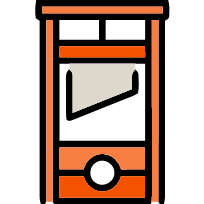Fuck Nestle.
It is not always easy for consumers in any country to tell whether a product contains added sugar, and how much is present, based on nutritional information printed on packaging alone.
That seems like the problem that actually needs solving.
Agreed but our governments have nearly completely checked out of monitoring food less the more immediate consequence type situations. Good luck getting real olive oil for example.
Victim blaming when Nestle could simply do… What’s better for the human body?
Yes, true. But have you considered the shareholders?
Can I sue Nestle and Johnson for milk and baby powder respectively? I am an Indian citizen, so I don’t know if I am entitled to the compensation for damages caused - my mother used their shitty products, and apparently, it killed babies in developing countries.
Unfortunately, Nestle and J&J have spent billions on lawyers and consultants, so even if you could sue it would go nowhere.
Does anyone know why Bangladesh had zero added sugar?
Could it be that Bangladesh has stricter regulations?
This is the best summary I could come up with:
Nestlé, the world’s largest consumer goods company, adds sugar and honey to infant milk and cereal products sold in many poorer countries, contrary to international guidelines aimed at preventing obesity and chronic diseases, a report has found.
Laurent Gaberell, Public Eye’s agriculture and nutrition expert, said: “Nestlé must put an end to these dangerous double standards and stop adding sugar in all products for children under three years old, in every part of the world.”
It is not always easy for consumers in any country to tell whether a product contains added sugar, and how much is present, based on nutritional information printed on packaging alone.
The UK recommends that children under four avoid food with added sugars because of risks including weight gain and tooth decay.
Biscuit-flavoured cereals for babies aged six months and older contained 6g of added sugar for every serving in Senegal and South Africa, researchers found.
A Nestlé spokesperson said: “We believe in the nutritional quality of our products for early childhood and prioritise using high-quality ingredients adapted to the growth and development of children.”
The original article contains 774 words, the summary contains 180 words. Saved 77%. I’m a bot and I’m open source!
Out of all the parasites capitalist society has produced, Nestle executives possibly deserve the
 the most
the mostNestle is still evil; more news at 11.
Corporation ignores guidelines in pursuit of profit. News at 11.
Corporations will not ever self-regulate. If the “global south” can’t even govern their food suppliers at the inadequate and shitty level the US does, then what else can be said? This is a problem that is directly within those governments ability to solve, but they still won’t even do that.
Unsolvable problems with the Nestle Corporation - They Exist and their executives weren’t guillotined in the 50’s.
Solvable problem with the Nestle Corporation - They are legally allowed to sell products within the sovereign countries of the global south while complying with all local laws and regulations.
If only something could be done…





